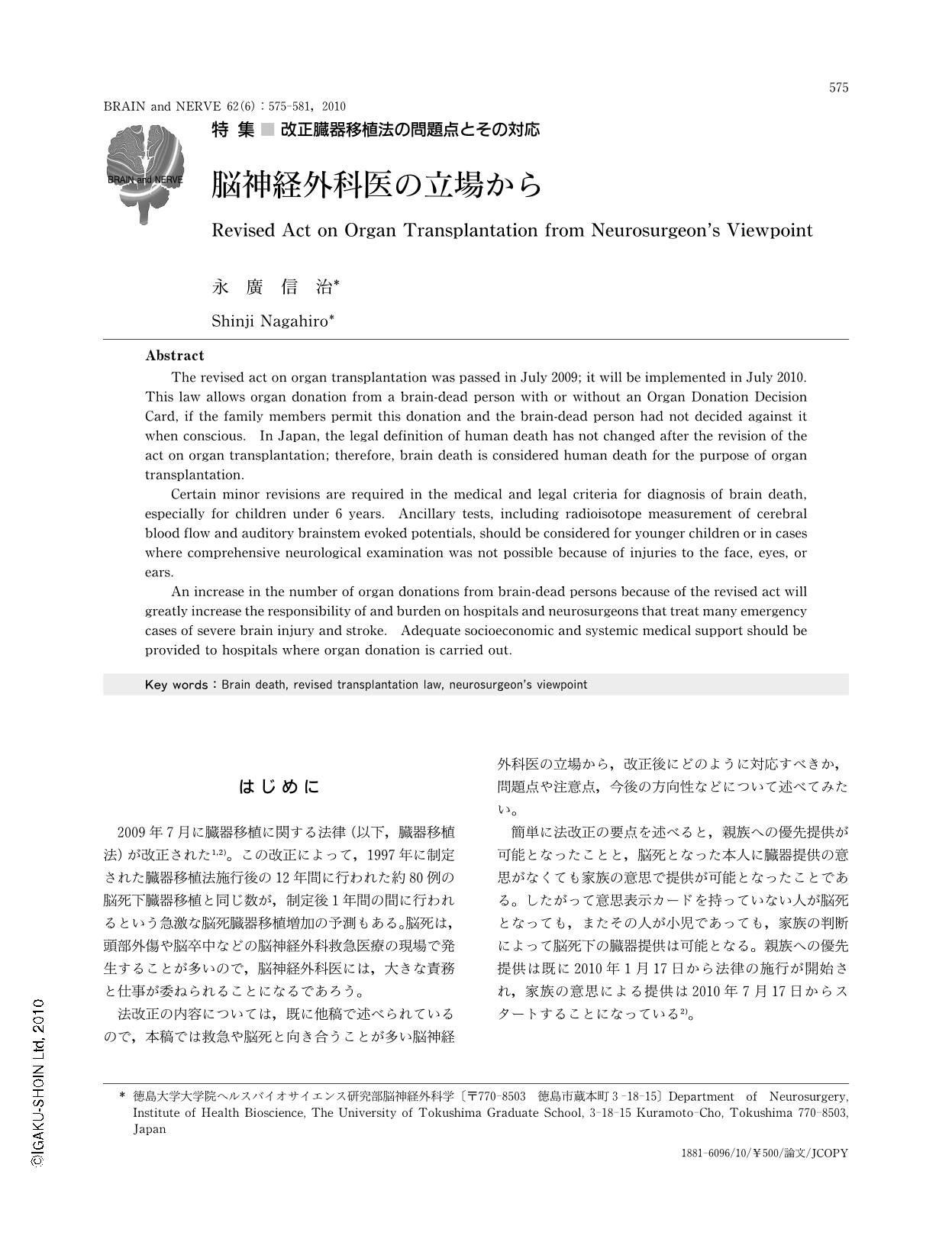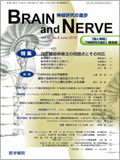Japanese
English
- 有料閲覧
- Abstract 文献概要
- 1ページ目 Look Inside
- 参考文献 Reference
- サイト内被引用 Cited by
はじめに
2009年7月に臓器移植に関する法律(以下,臓器移植法)が改正された1,2)。この改正によって,1997年に制定された臓器移植法施行後の12年間に行われた約80例の脳死下臓器移植と同じ数が,制定後1年間の間に行われるという急激な脳死臓器移植増加の予測もある。脳死は,頭部外傷や脳卒中などの脳神経外科救急医療の現場で発生することが多いので,脳神経外科医には,大きな責務と仕事が委ねられることになるであろう。
法改正の内容については,既に他稿で述べられているので,本稿では救急や脳死と向き合うことが多い脳神経外科医の立場から,改正後にどのように対応すべきか,問題点や注意点,今後の方向性などについて述べてみたい。
簡単に法改正の要点を述べると,親族への優先提供が可能となったことと,脳死となった本人に臓器提供の意思がなくても家族の意思で提供が可能となったことである。したがって意思表示カードを持っていない人が脳死となっても,またその人が小児であっても,家族の判断によって脳死下の臓器提供は可能となる。親族への優先提供は既に2010年1月17日から法律の施行が開始され,家族の意思による提供は2010年7月17日からスタートすることになっている2)。
Abstract
The revised act on organ transplantation was passed in July 2009; it will be implemented in July 2010. This law allows organ donation from a brain-dead person with or without an Organ Donation Decision Card,if the family members permit this donation and the brain-dead person had not decided against it when conscious. In Japan,the legal definition of human death has not changed after the revision of the act on organ transplantation; therefore,brain death is considered human death for the purpose of organ transplantation.
Certain minor revisions are required in the medical and legal criteria for diagnosis of brain death,especially for children under 6 years. Ancillary tests,including radioisotope measurement of cerebral blood flow and auditory brainstem evoked potentials,should be considered for younger children or in cases where comprehensive neurological examination was not possible because of injuries to the face,eyes,or ears.
An increase in the number of organ donations from brain-dead persons because of the revised act will greatly increase the responsibility of and burden on hospitals and neurosurgeons that treat many emergency cases of severe brain injury and stroke. Adequate socioeconomic and systemic medical support should be provided to hospitals where organ donation is carried out.

Copyright © 2010, Igaku-Shoin Ltd. All rights reserved.


